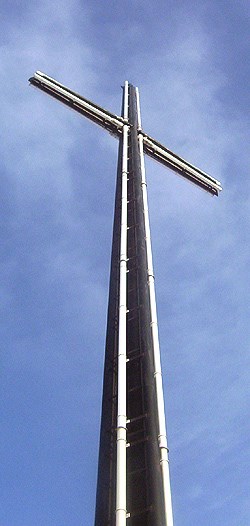Grappling with an issue that's being litigated in at least one other Canadian jurisdiction, the Huron Superior Catholic District School Board agreed last night that non-Catholics should be excluded from school governance positions.
Trustee Grace Tridico was voted down when she asked the board to amend a policy governing membership in parent councils to allow one non-Catholic member on each council.
Trustee Laurie Aceti immediately spoke against Tridico's amendments, saying the idea was dangerous.
"The people on the parent councils should reflect the same qualifications as we on this board," Aceti said. "It would become difficult to maintain Catholicity in our schools [otherwise]."
Last week, a Catholic school board in Yellowknife, NWT announced that it's appealing a court decision that allows non-Catholics to sit as trustees.
In launching its appeal against the May 23 decision, the Yellowknife board expressed concern that allowing non-Catholics a role in governance could lead to Catholic boards being taken over and converted into public school systems.
Here in Sault Ste. Marie, Trustee John Caputo said last night that he believes one role of a parent council is to advise school principals on how to integrate Catholicity into Catholic schools.
"I don't think a non-Catholic should have a say in the vision of the Catholic direction we want to take in a school," said Caputo.
He said, however, he had no objection to non-Catholic parents sending their children to Catholic schools, fundraising for the schools or even attending parent council meetings to report on fundraising activities.
Trustees Sandra Turco and Lindsay Liske also voted against the Tridico amendment.
Trustee Gerald Beerkens voted for it, arguing that it would allow more parent participation in smaller communities by not excluding non-Catholics.
Trustee Conrad Bobiwash also voted in favour of allowing non-Catholic parents to join parent councils, because it would foster inclusiveness and facilitate the spreading of Catholic values without prejudice based on race, religion, gender or ethnicity.
Trustee Kathleen Rosilius voted against the Tridico amendment, saying the Catholic school system is under attack and is not yet strong enough to sustain this concession to non-Catholics.
Rosilius said governments and public school supporters are trying to undermine the Catholic school system's power to lobby for funding, preserve its Catholic identity and educate its children in an environment of Catholic morality.
"We just can't afford to make this concession at this time," she said. "Maybe later when we are stronger, but we have some work to do before we let non-Catholics hold positions of authority in our system."
Trustee Regis O'Connor seconded and supported the amendments proposed by Tridico, but said he was uncomfortable because they didn't go far enough.
"What Grace has proposed severely limits non-Catholic participation," he said. "I counted at least seven people on the school council and we've allowed just one to be a non-Catholic; one who can never be a chair or a vice-chair."
O'Connor said the board and other Catholic educators have a responsibility to be an example to others and to proselytize. Tridico brought the amendments to the board last night because she'd been approached by a parent who was already a member of a parent council when she found out she was supposed to be Catholic to join.
"I didn't see why she would send her kids to a Catholic school if she didn't respect the Catholic faith," said Tridico. "We are supposed to be fair and I thought these amendments were fair."
Tridico said she accepted and supported the will of the board, and she intends to contact the parent who approached her to suggest she remove herself from the parent council.
Media commentary about the Yellowknife case indicates it is likely to end up at the Supreme Court of Canada.
